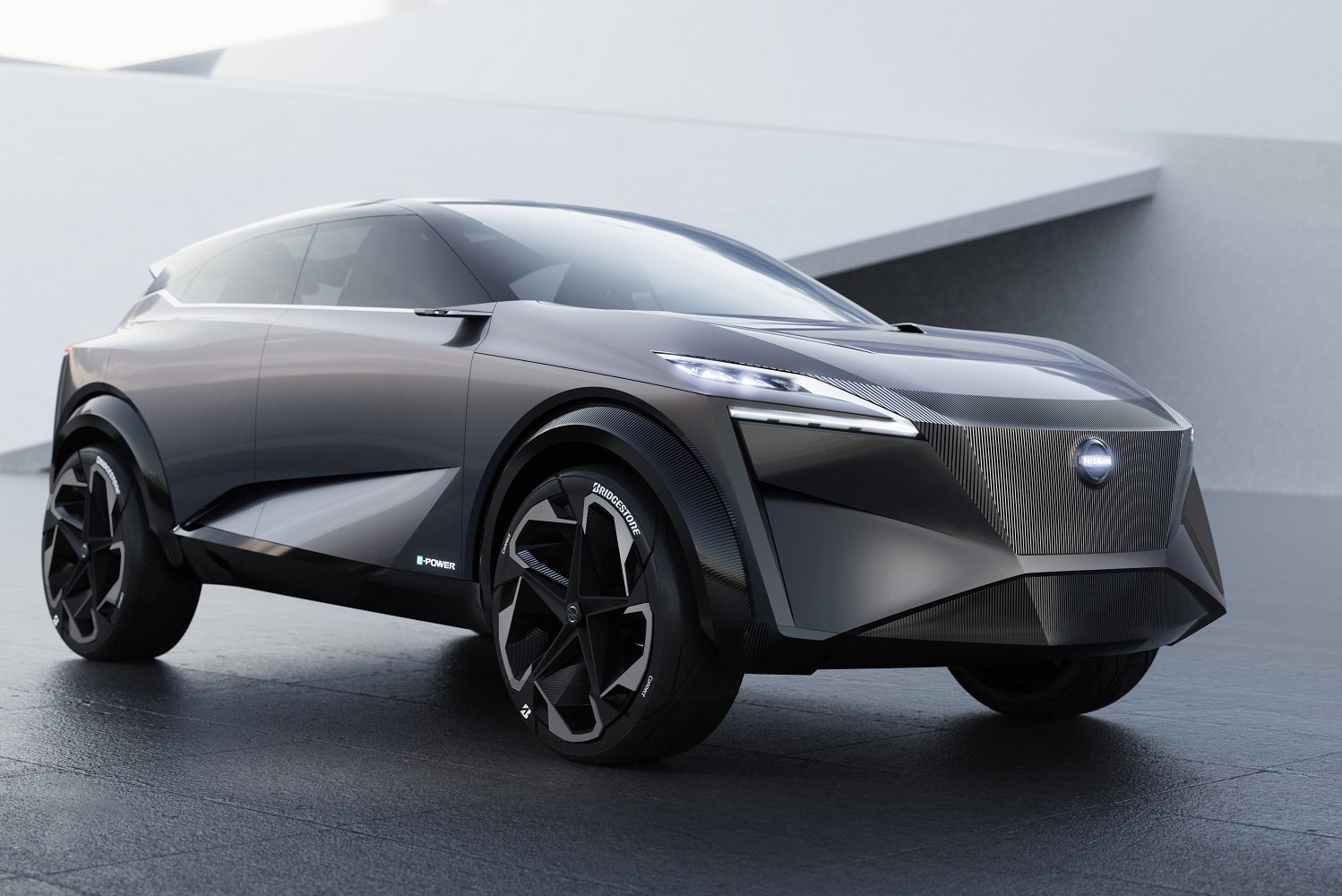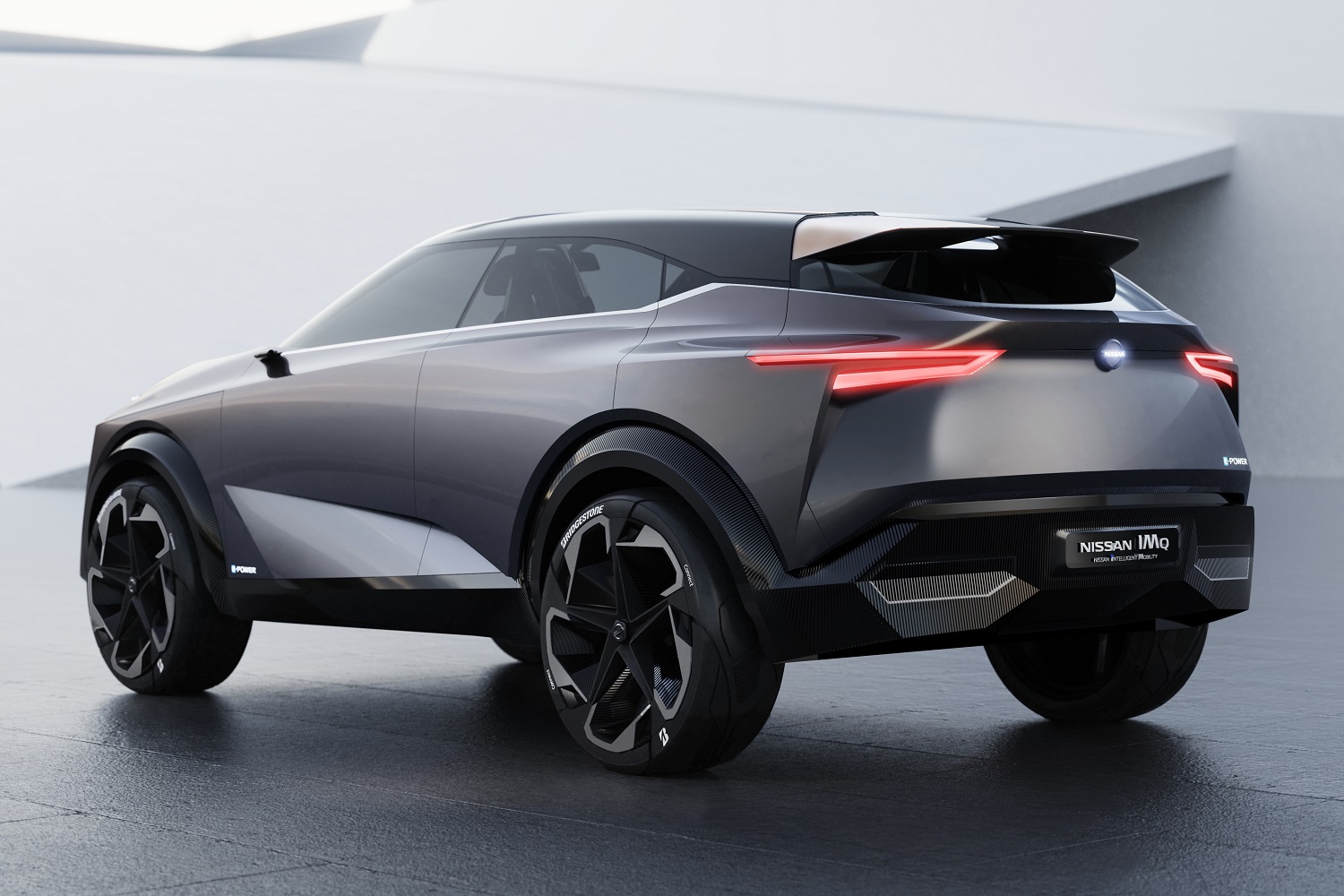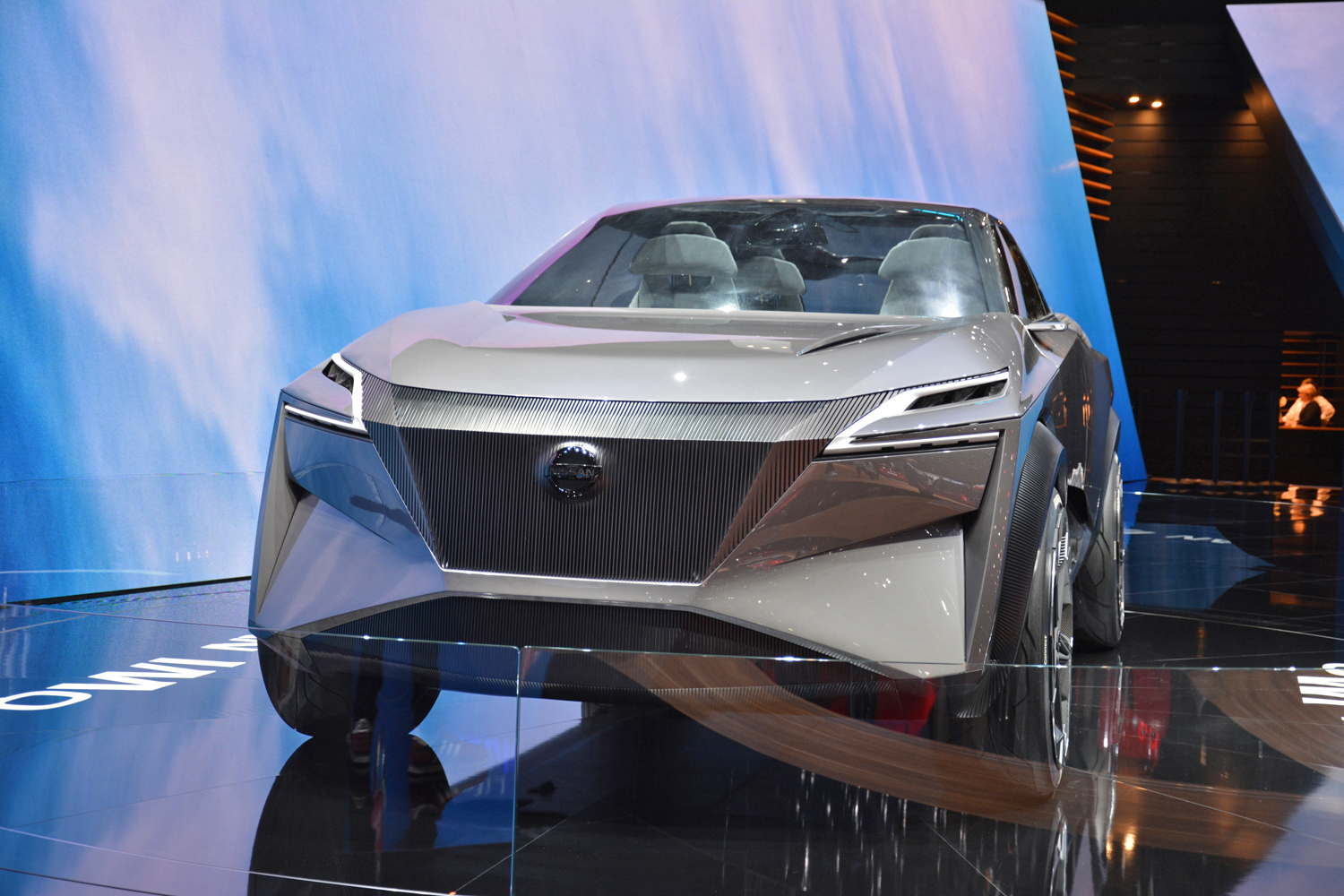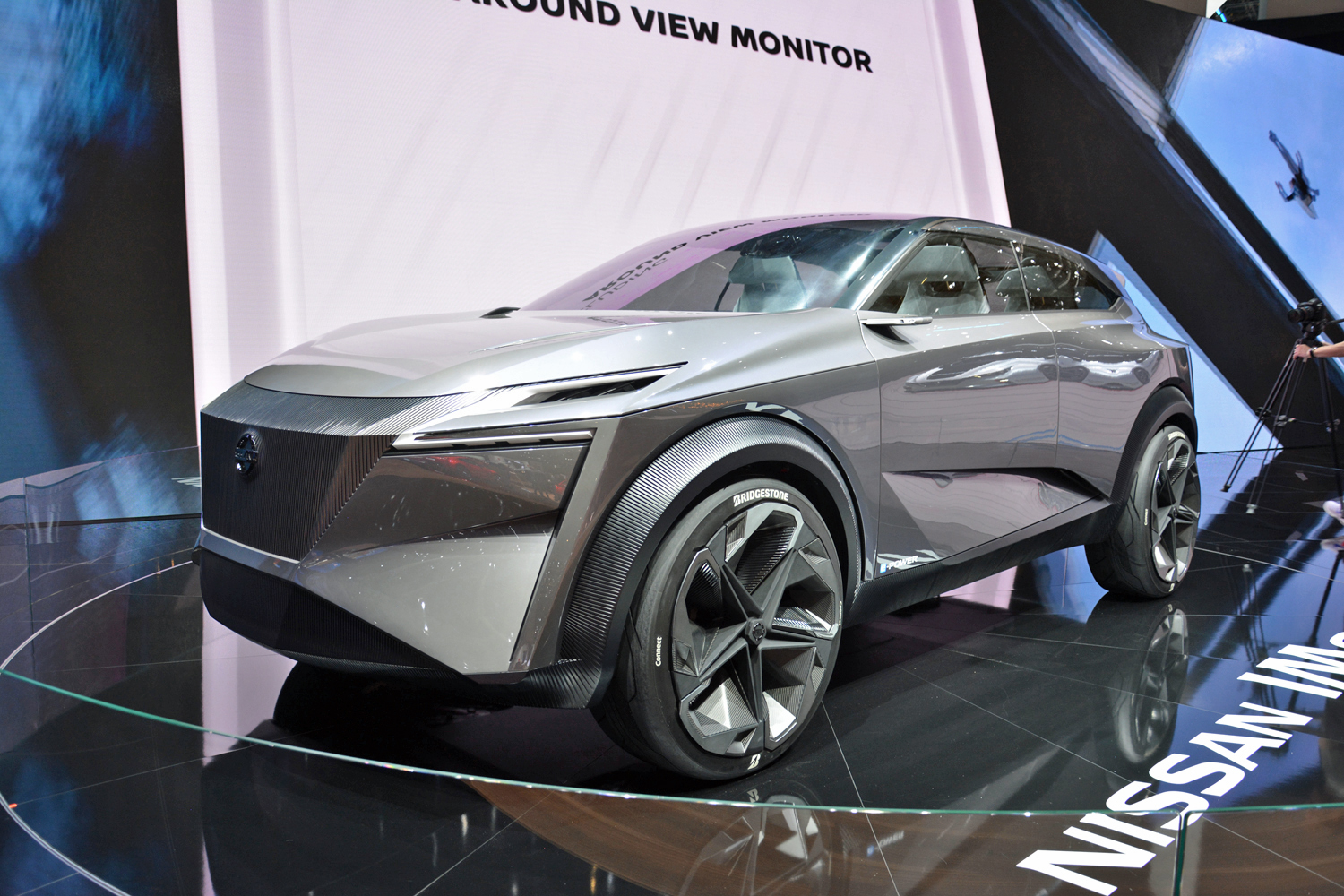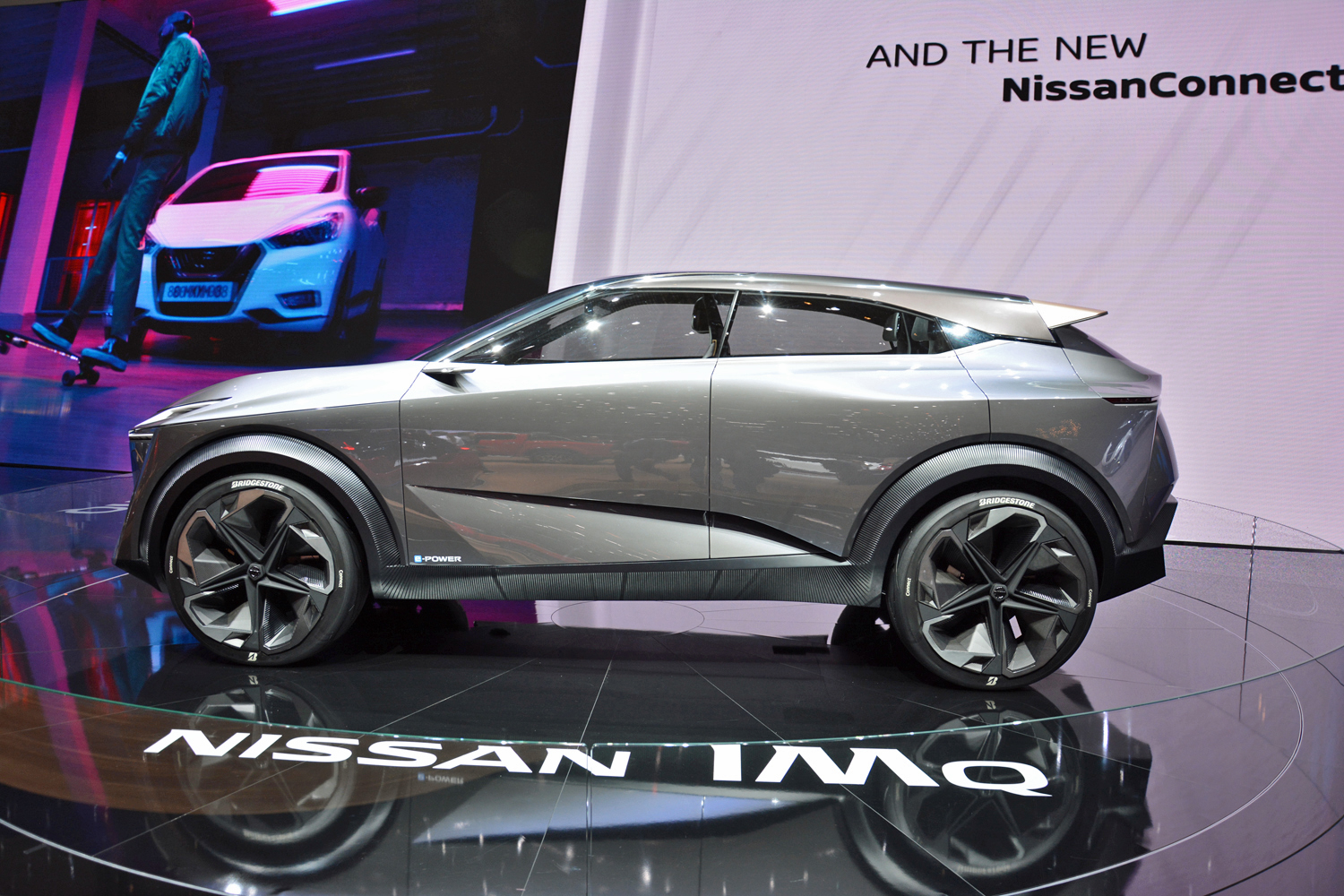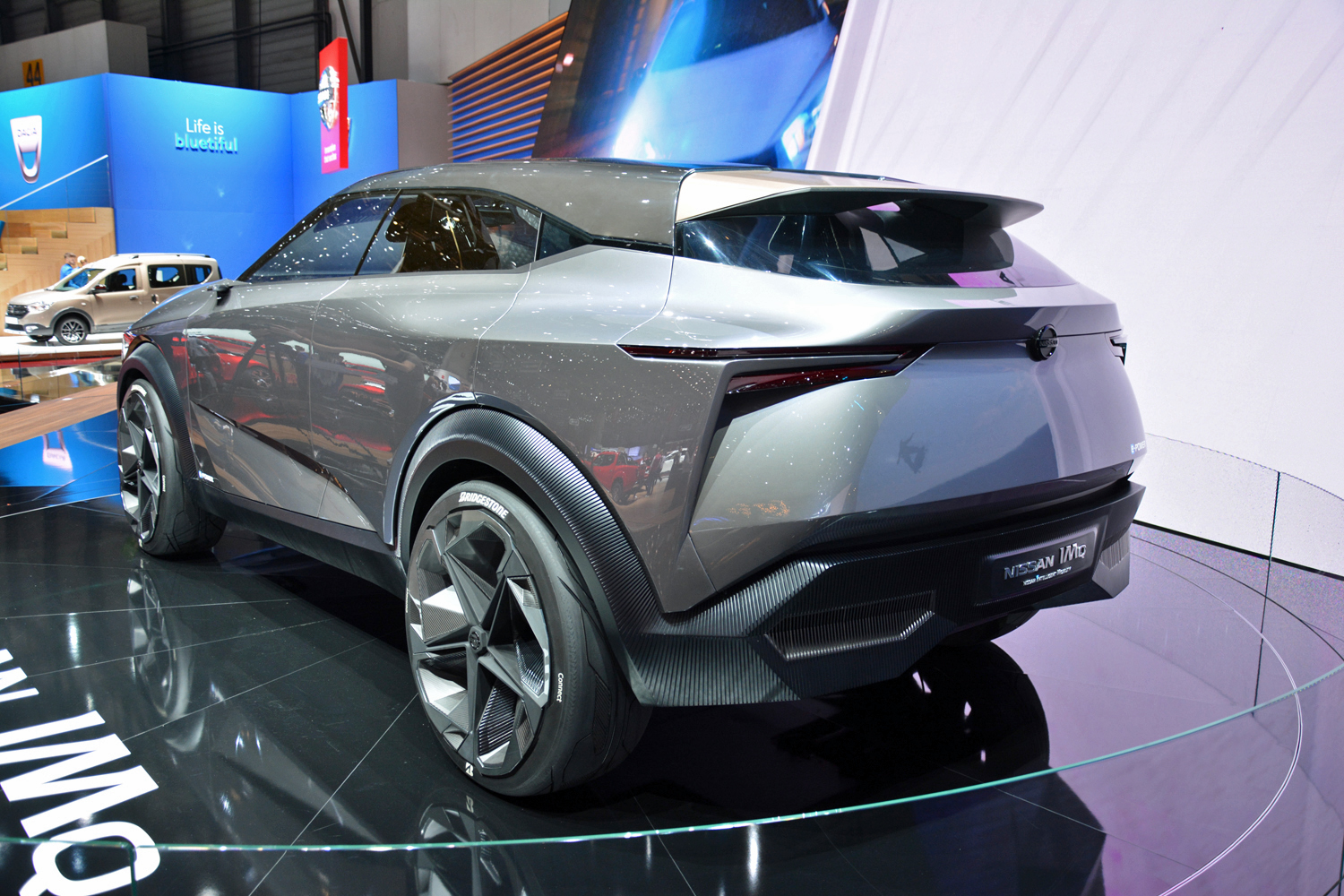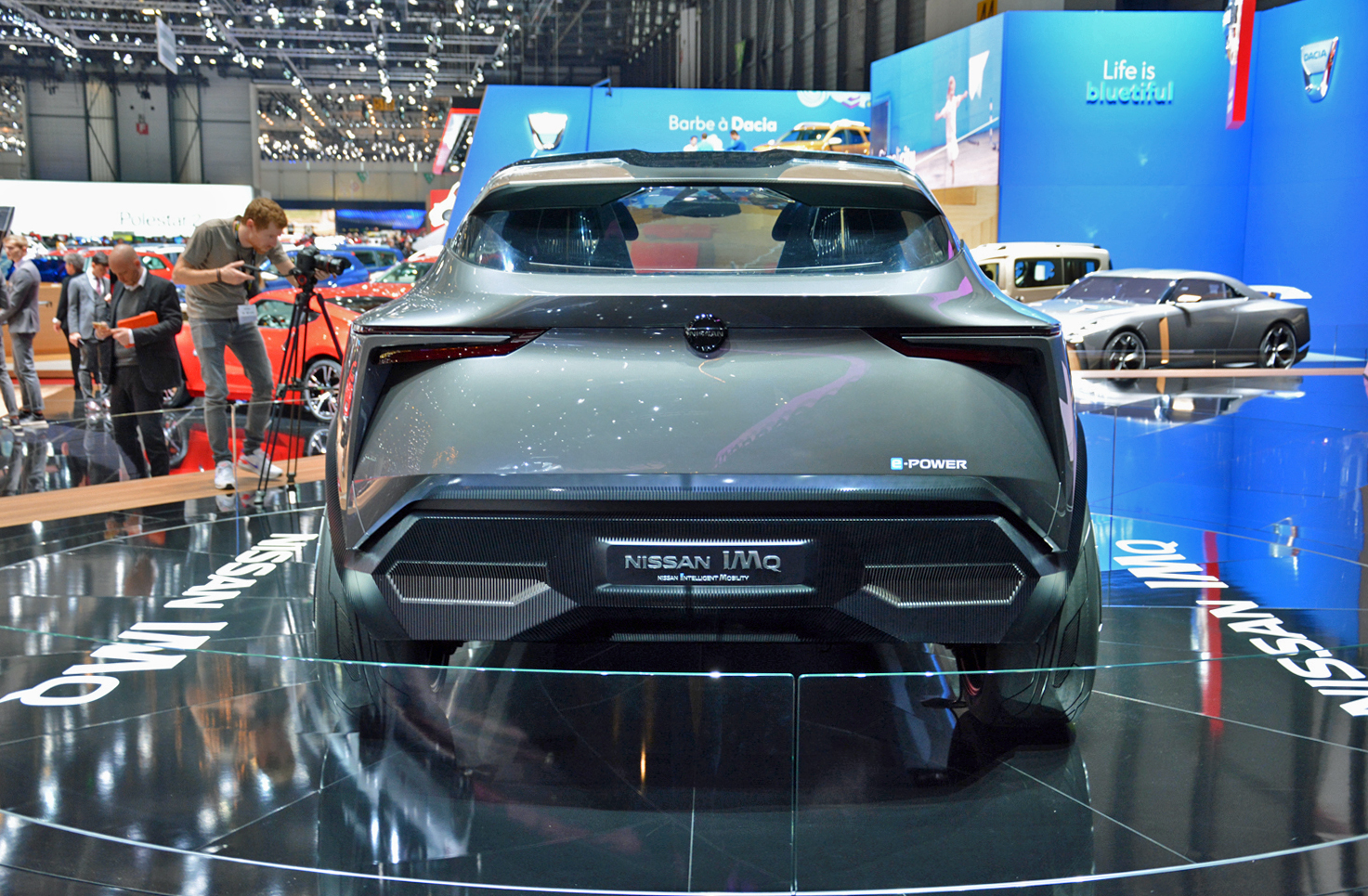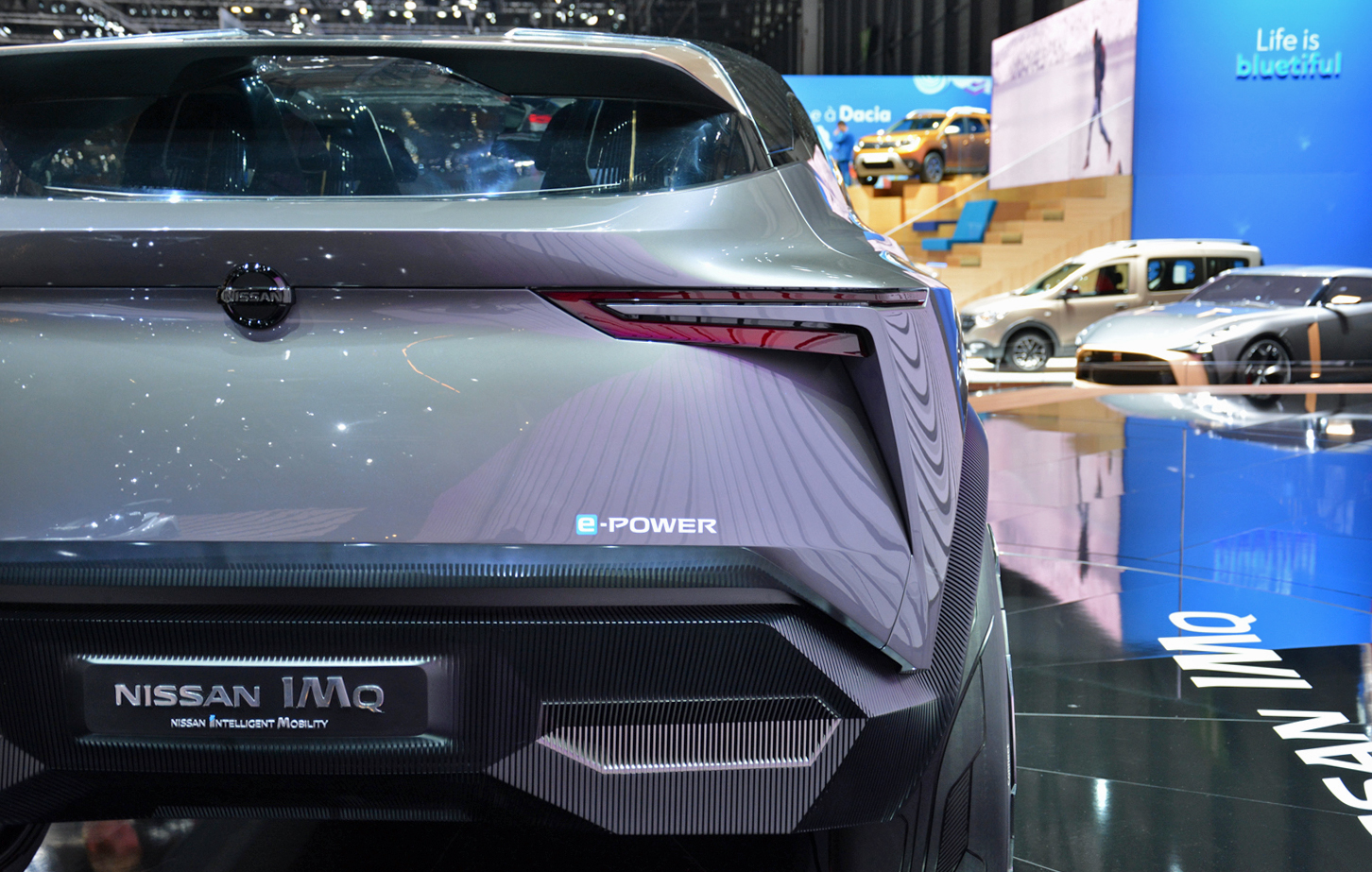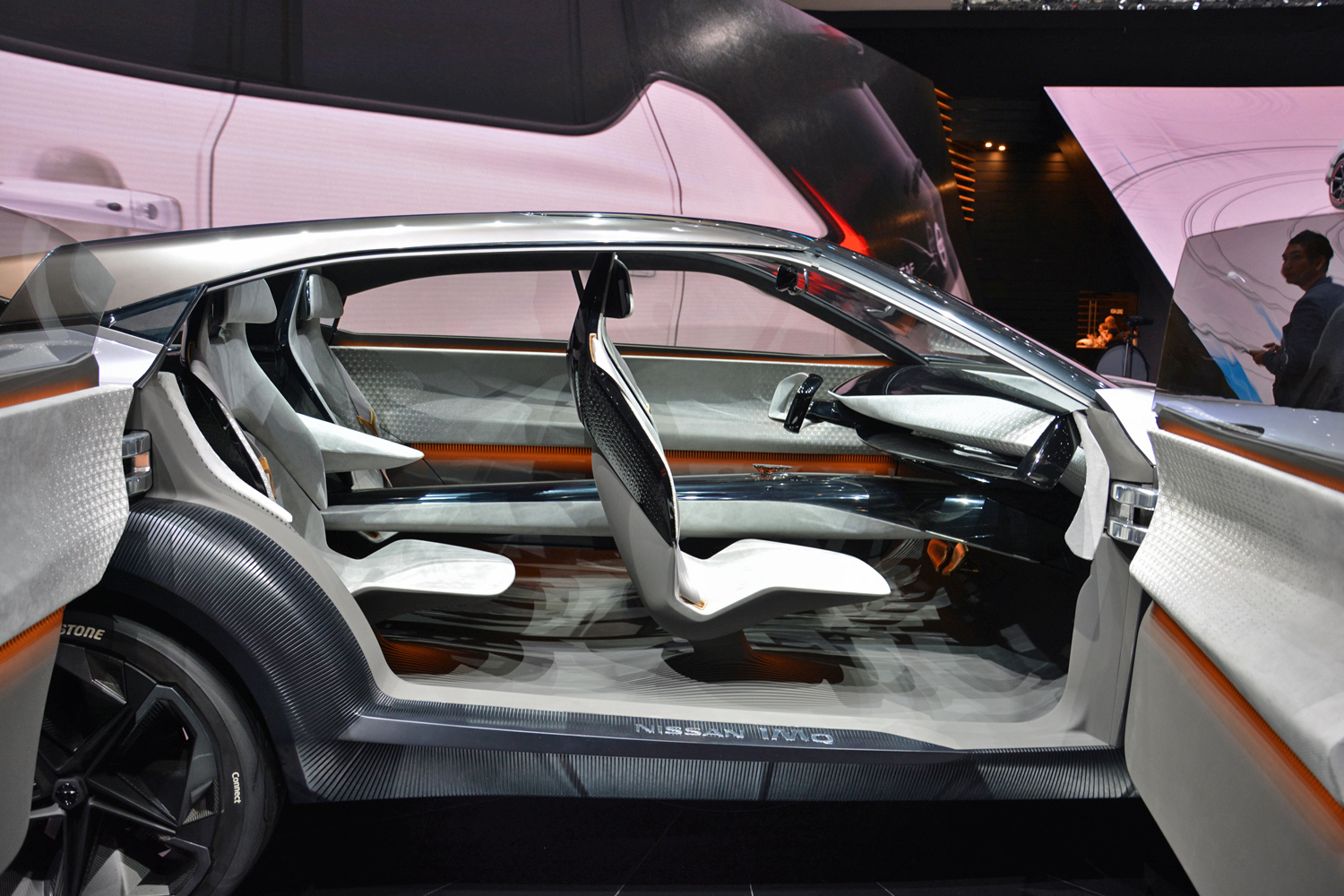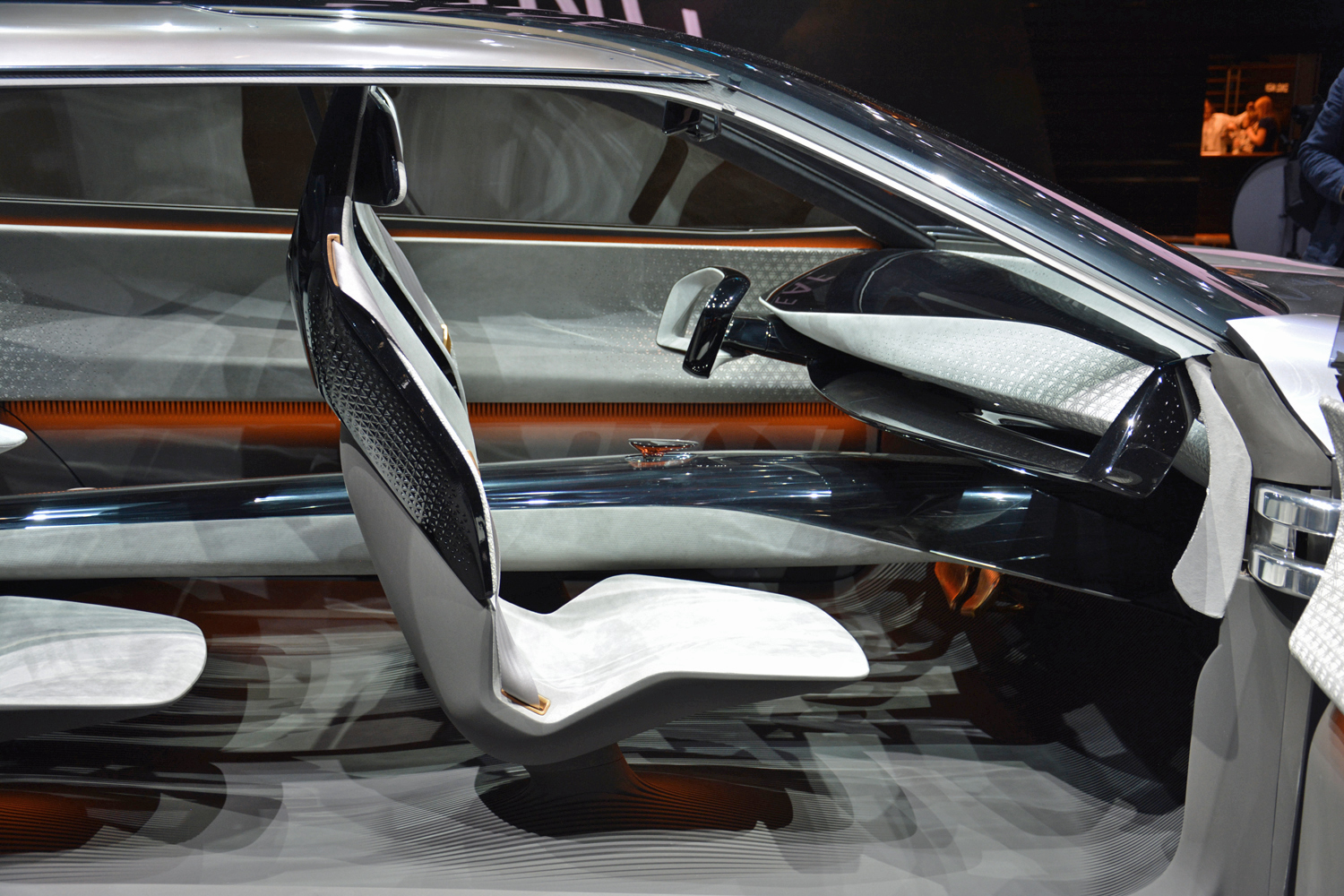Nissan has focused on developing electric technology since it released the original Leaf in 2010. It also believes in hybrid powertrains, and it traveled to the 2019 Geneva Auto Show to shed insight into the kind of gasoline-electric model it could bring to the market. The IMQ concept fits right in at the show because it’s tall, it’s electrified, and it’s high-tech in surprising ways.
The name announces Nissan’s next concept is the latest in a series of futuristic, electrified models that includes the IMX introduced at last year’s Geneva show, and the IMS we saw during the 2019 Detroit show. In photos and in person, the design study looks more like a Hot Wheels car you’d find in a kid’s toy chest than a family-hauler you’d expect to see in the Whole Foods parking lot, and it breaks all ties with Nissan’s current design language. That’s intentional; it’s a preview of the direction the company’s styling studio wants to take crossovers in.
“The IMQ’s design combines traditional and modern Japanese influences and shows what’s possible when future crossovers are powered by Nissan Intelligent Mobility,” said Alfonso Albaisa, the senior vice president for design at Nissan.
The IMQ is “an all-new vehicle that embodies the future of Nissan Intelligent Mobility,” according to a statement released by the firm. It’s powered by a hybrid powertrain built around a 1.5-liter, four-cylinder engine. Nissan quotes a system output of 335 horsepower and 516 pound-feet of torque, figures that make it more powerful than any crossover the brand currently sells. The IMQ is fitted with ProPilot Assist driver-assistance technology that can take over in cities and on highways, and it packs the invisible-to-visible technology Nissan introduced during CES 2019. I2V makes driving similar to playing a video game; it also gives motorists traveling alone the possibility of spawning a 3D, augmented reality avatar as a passenger, Nissan noted.
Car companies often design and build concepts just to turn heads on the auto show circuit, but the IMQ could be more than eye candy. Nissan hinted it’s a model we may see in its showrooms sooner or later. It ambiguously wrote that its design study “gives a sneak peek as to what might be in your future driveway.” Stylists will most likely tone down the design, but the hybrid powertrain and the advanced driving aids could reach production.
Updated on March 6, 2019: Added full information about the Nissan IMQ.
